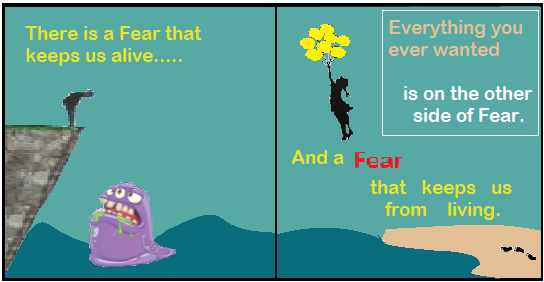I fished reading the book The Marshmallow Test: Why Self-Control Is the Engine of Success by Walter Mischel and wanted to make a note to myself.
Are you only into immediate
rewards or can you wait and reap twice what you could get now. A
Bird in the hand is worth two in the bush. Daniel
Kahneman (Thinking Fast and Slow) has a
similar model of “fast” and “slow” thinking that
has many parallels to what is described by Walter Mischel.
Mischel describes two systems in the brain: "hot" (limbic) and "cold" (prefrontal cortex). The Hot system deals with immediate threats and rewards. The Cold system deals with delayed consequences. The key to self-control is cooling the hot system where appropriate. When the Limbic System Kicks in it may shut down the prefrontal cortex and prevent cooling if you cannot recognize a hot button before it takes over. We need to learn to recognize Hot-Buttons and activate our Prefrontal Cortex to work on delayed rewards that are larger than immediate rewards.
As a child would you wait for twenty minutes to have two marshmallows or have one right now. Can you delay rewards? Could you as a child? And what does that have to do with the rest of your life? In this book Walter Mischel explains that your ability as a child to delay gratification is a Key Indicator to life time performance. The Marshmallow test (Delayed Gratification) has the ability to predict higher SAT scores better social and cognitive functions, a healthier lifestyle and a greater sense of self-worth.
Nature or Nurture? Do our Genes define our level of self-control or is there an epi-genetic control that can turn self-control on or off? Can willpower (our cognitive ability) substantially increase this crucial ability via our brains plasticity to gain more self-control? Genetics clearly plays a role in the level of self-control you have, but Genetics are not your destiny. If you really want to, you can increase your self-control if you approach it with a growth mindset and that willpower is not a limited resource over which you have no control.
Not only do you at times not
need willpower, you can often remove the source of temptation by not buying it
and surrounding yourself with people who can help you. You may also want to have an effective
pre-commitment strategy and cues.
* MAKE UP
"IF...THEN" RULES. We tend to react to cues out of habit. Create new
habits with new cues. IF I go to a restaurant, THEN I will start my meal with a
salad. IF I get an email notification, THEN I will finish the next item on my
to-do list before reading the email. When well-rehearsed and practiced, the
desired behavior is triggered automatically without effort.
* COOL THE NOW, HEAT THE LATER. Vividly imagine the negative consequences of immediate gratification: Whenever you are tempted to smoke, visualize the picture of a cancerous lung. If you are tempted overeat, visualize the picture of a person who is unfit and out of shape.
* DISTANCE YOURSELF FROM THE SITUATION. Refer to yourself in the third person. Instead of saying "I've to finish the report by tomorrow", I can say "Chuck has to finish the report by tomorrow." This way you distance yourself and change your role to that of an observer. This makes the completion of the task easier.
* SHIFT YOUR FOCUS FROM HOT TO COOL PROPERTIES. Shift your attention from the hot to the not-so-hot attributes of the stimulus: Instead of looking at the chocolate as a tasty flavorful treat look at it as a brown square, wrapped in paper. By focusing your attention on the on the cool attributes of a stimulus, we can decrease its appeal.
* COOL THE NOW, HEAT THE LATER. Vividly imagine the negative consequences of immediate gratification: Whenever you are tempted to smoke, visualize the picture of a cancerous lung. If you are tempted overeat, visualize the picture of a person who is unfit and out of shape.
* DISTANCE YOURSELF FROM THE SITUATION. Refer to yourself in the third person. Instead of saying "I've to finish the report by tomorrow", I can say "Chuck has to finish the report by tomorrow." This way you distance yourself and change your role to that of an observer. This makes the completion of the task easier.
* SHIFT YOUR FOCUS FROM HOT TO COOL PROPERTIES. Shift your attention from the hot to the not-so-hot attributes of the stimulus: Instead of looking at the chocolate as a tasty flavorful treat look at it as a brown square, wrapped in paper. By focusing your attention on the on the cool attributes of a stimulus, we can decrease its appeal.
To see the TABLE OF CONTENTS
In the science of self-control it
is said “good things really do come to those who wait”. But like most things, taking control of any area
of your life starts with asking the question: Would you like to?
Sitzfleisch, the
ability to sit in a seat and reach a goal, despite obstacles.
How many things are in the world that are temptations, that if we just followed a few simple rules, we could live a life of reaching goals.
How many things are in the world that are temptations, that if we just followed a few simple rules, we could live a life of reaching goals.


No comments:
Post a Comment